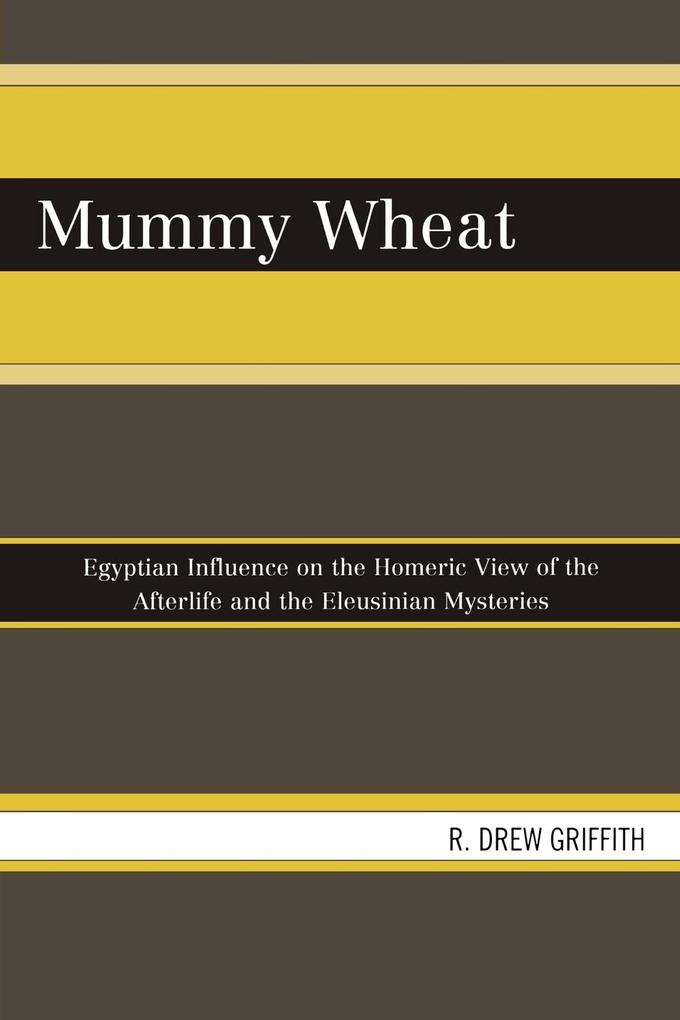
Zustellung: Sa, 07.06. - Do, 12.06.
Versand in 6 Tagen
VersandkostenfreiBestellen & in Filiale abholen:
Homer presents a world-view in which death represents the end of consciousness and total annihilation of personhood. Yet in Odyssey, Book Four, he contradicts this by saying that one man at least will not die, but will be transported to Elysium, where he will have a blessed existence forever. In Mummy Wheat R. Drew Griffith argues that this shocking violation of Homer's normal world-view comes from Egypt, where more than anywhere else in the ancient world people firmly believed in life after death.
Inhaltsverzeichnis
Chapter 1 Brought Forth from the Land of Egypt Chapter 2 Rowing to Elysium: Menelaus' Afterlife and Egyptian Religion Chapter 3 The Voice of the Dead In the Odyssey and Egyptian Funerary Texts Chapter 4 The Origin of Memnon Chapter 5 Local Colour: The Egyptian Basis for some Homeric Descriptions Chapter 6 Mechanism of Contact Chapter 7 The Egyptian Background to the Eleusinian Mysteries Chapter 8 Near Death Experience and the Eleusinian Mysteries: Resuscitation as Psychotherapy Chapter 9 Afterward
Produktdetails
Erscheinungsdatum
18. September 2008
Sprache
englisch
Seitenanzahl
272
Autor/Autorin
R. Drew Griffith
Verlag/Hersteller
Produktart
kartoniert
Gewicht
446 g
Größe (L/B/H)
229/152/16 mm
ISBN
9780761842989
Entdecken Sie mehr
Pressestimmen
Importanttttt Bryn Mawr Classical Review, April 2009 Since the 1990s consideration of Egyptian etymologies has opened up in the West, and such younger classicists as Garth Alford, Erwin Cook, and R. Drew Griffith have begun to study striking similarities between Egyptian and Homeric imagery and vocabulary. -- Martin Bernal, author of Black Athena: The Afroasiatic Roots of Classical Civilization Volume III The Linguistic Evidence Since the 1990s consideration of Egyptian etymologies has opened up in the West, and such younger classicists as Garth Alford, Erwin Cook, and R. Drew Griffith have begun to study striking similarities between Egyptian and Homeric imagery and vocabulary. -- Martin Bernal, author of Black Athena: The Afroasiatic Roots of Classical Civilization Volume III The Linguistic Evidence Important Bryn Mawr Classical Review, April 2009
Bewertungen
0 Bewertungen
Es wurden noch keine Bewertungen abgegeben. Schreiben Sie die erste Bewertung zu "Mummy Wheat" und helfen Sie damit anderen bei der Kaufentscheidung.









